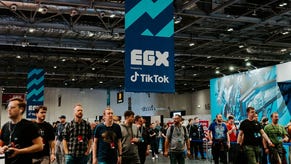Oculus: The Climb is Rift's best-seller to date
It's one of several titles that have made over $1m on the Oculus store alone, according to Jason Rubin
In an offical Oculus blog post yesterday, head of content Jason Rubin wrote a bit about the state of VR and Oculus specifically, revealing that, "Multiple games have passed the $1M mark, and players have logged more than 1.3M hours combined in our top five apps by time spent since launch." In a separate talk with Road to VR, Rubin added that Crytek's The Climb is not only among that group of best sellers, but that the game is actually the top-selling Rift title to date. It wasn't made explicitly clear if that's unit sales or dollars, but with a price point of $50 it could very well be both.
The Climb has been able to leverage the hype surrounding both the original Oculus Rift launch and then the release of the Touch controllers when the game immediately got an update to use the new input. Rubin lablelled the game "the greatest achievement in VR development so far," partially for its visuals but also becuase "it was made in eight months, which is amazing." He noted that its success is thanks "partly for how long it's been out, partly because it's great."
Of course, when it comes to VR, success is all relative. Official sales figures are hard to come by. We know the installed bases are still low, and that Rift trails both HTC Vive and PlayStation VR. Some rough math would suggest that if you take the $1 million minimum, The Climb has sold at least 20,000 units on the Oculus storefront alone (and that would not include any sales, which would lower the price and revenue per unit).
It would seem that 20,000 units would be a solid figure for an Oculus game at this stage. As inXile boss Brian Fargo explained to me about his own "#1 selling Oculus game" The Mage's Tale, "I tell my guys to temper their excitement because it's probably a real active installed base of 100,000 people or so. If you could make a 20% tie ratio, that would be unbelievable. So to me, that feels like the high end of things. But when we start bringing Mage's Tale to other formats in the future, it'll eventually pay for itself."
In that same interview, Fargo noted that AAA VR titles can cost upwards of $5 million on the high end, and on PSVR he's seen some budgets as high as $10 million. Needless to say, if you're spending several million on development but a title only generates north of $1 million, that makes profitability challenging, at least in the short-term. Rubin is optimistic that things will be getting better quickly, though.
"It takes time to make great titles. And it takes time to get pricing down. We've put in that time, and we're all now ready to reap the reward," he said. "Consumers have been waiting for VR to establish a large library of potential experiences for them to try. We're getting there and working harder than ever. Consumers have been waiting for the 'killer app,' and we're seeing potential candidates appear on a regular basis while constantly striving to outdo ourselves. And consumers have been holding onto their wallets waiting for competitive hardware pricing. Oculus has driven the price down, and we never rest."
The 'killer app' Rubin is referring to is Ready at Dawn's Lone Echo and its multiplayer component Echo Arena. "Echo Arena's open beta weekends had the best reception we've received on any new title to date," Rubin added. "'This is it'," we keep hearing. 'This is the killer app.' The truth is that VR's going to generate a lot of killer apps as it matures, but any journey starts with a first step!"
As for Crytek, which followed The Climb with the less well received Robinson: The Journey, Rubin confirmed that there are no plans to work with the studio on future Oculus titles at the moment, likely because of the company's troublesome financial situation.








